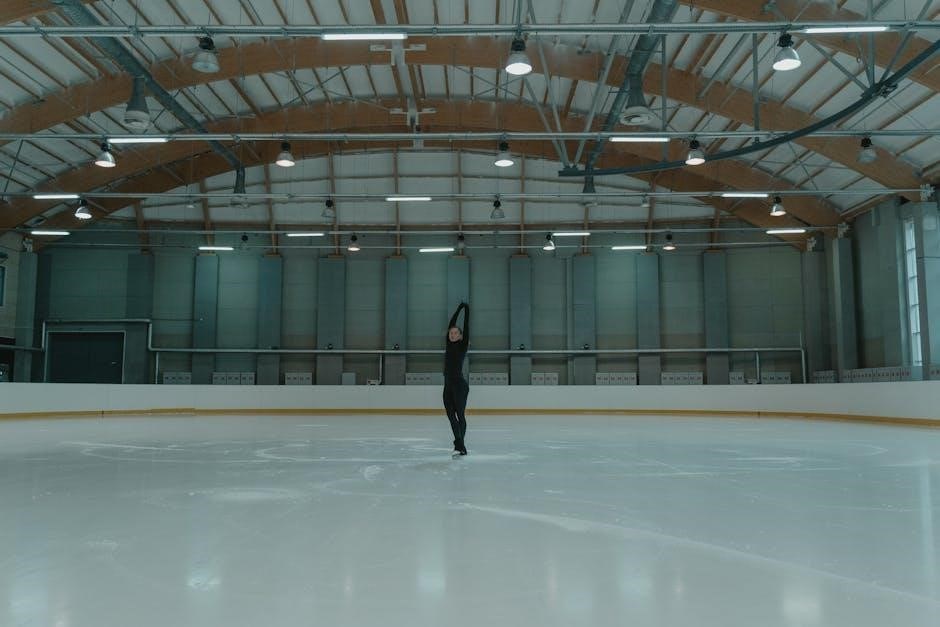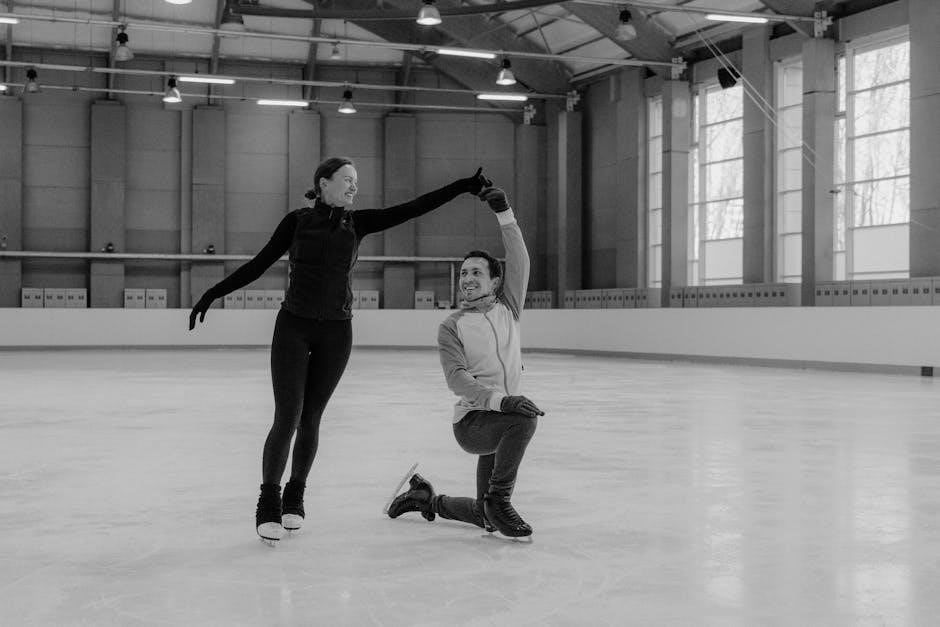rephrasing exercises 2 bachillerato resueltos pdf
Rephrasing exercises are essential for improving language skills, allowing students to practice rewriting sentences while maintaining their original meaning. These exercises enhance clarity, precision, and grammatical accuracy, preparing students for academic challenges. PDF resources and solved exercises provide valuable practice materials, ensuring students and teachers have accessible tools for mastering English rephrasing techniques effectively.
Overview of Rephrasing in English Learning
Rephrasing is a fundamental skill in English learning that involves rewriting sentences to convey the same meaning using different words or structures. It enhances vocabulary, grammar, and comprehension while improving clarity and precision in communication. This technique is particularly useful for academic writing, language exams, and everyday conversations. Through rephrasing, students learn to express ideas more effectively and understand various ways to present information. Resources like PDF downloads and solved exercises provide structured practice, helping learners master conditional sentences, relative clauses, and passive voice. Regular practice with rephrasing exercises ensures improved fluency and accuracy, making it an essential part of English language development for students at all levels, including those preparing for Bachillerato 2.
Importance of Practicing Rephrasing for Bachillerato Students
Importance of Practicing Rephrasing for Bachillerato Students
Practicing rephrasing is crucial for Bachillerato students as it strengthens their command of English grammar and vocabulary. It helps students develop the ability to express ideas in multiple ways, improving both written and spoken communication. Regular practice enhances understanding of sentence structures, such as conditional sentences and relative clauses, which are often challenging. Additionally, rephrasing exercises prepare students for standardized tests and academic writing by refining their ability to convey complex ideas clearly. By using resources like PDF downloads and solved exercises, students can systematically improve their skills, ensuring they achieve higher proficiency in English and perform better in exams like the PAU and EBAU. Mastery of rephrasing also fosters critical thinking and linguistic flexibility, essential for long-term academic success.

Types of Rephrasing Exercises
Rephrasing exercises include conditional sentences, relative clauses, passive voice, and comparatives/superlatives. These tasks help students master various grammatical structures and linguistic nuances effectively in English.
Conditional Sentences
Conditional sentences are a key focus in rephrasing exercises for Bachillerato 2. These sentences express hypothetical or uncertain situations, often using “if” clauses. Students learn to rephrase sentences like “We didn’t see the movie because the cinema was closed” into “If the cinema hadn’t been closed, we would have seen the movie.” This practice enhances understanding of verb tenses and logical connections. By transforming direct statements into conditional forms, students improve their ability to convey complex ideas clearly. PDF resources provide solved examples, such as changing “She doesn’t understand because you haven’t explained it” to “If you had explained it, she would understand.” These exercises are essential for mastering conditional structures in English.
Relative Clauses
Relative clauses are a fundamental aspect of rephrasing exercises, enabling students to combine sentences and provide additional information about a noun. For example, the sentences “John bought a new CD player. It was made in Korea” can be rephrased as “John bought a new CD player, which was made in Korea.” This practice helps students improve their ability to link ideas cohesively. PDF resources offer solved exercises, such as transforming “The building was destroyed in the earthquake. It was historic” into “The building, which was historic, was destroyed in the earthquake.” These exercises enhance grammatical accuracy and sentence structure, preparing students for advanced language tasks in Bachillerato 2.
Passive Voice
Passive voice exercises are crucial for rephrasing, focusing on altering sentence structure to emphasize the action’s receiver. For instance, “The UN is sending food to the refugees” becomes “Food is being sent to the refugees by the UN.” This shift highlights the subject receiving the action, enhancing sentence clarity and variability. PDF resources provide numerous solved examples, such as transforming “The documents will be posted to you on Monday” into “You will be posted the documents on Monday.” These exercises help students master passive constructions, essential for formal writing and advanced grammatical accuracy in Bachillerato 2 English studies, ensuring they can convey complex ideas effectively and precisely.
Comparatives and Superlatives
Comparatives and superlatives are essential for expressing comparisons in English, and rephrasing exercises help students master these structures effectively. For instance, “Jane is more intelligent than Mike” can be rephrased as “Mike is not as intelligent as Jane.” Such exercises enhance the ability to convey comparisons clearly and accurately. PDF resources provide numerous examples, such as transforming “Going out is not as good as staying at home” into “Staying at home is better than going out.” These exercises also cover superlatives, like rephrasing “This is the cheapest flight” to “No other flight is as cheap as this one.” Regular practice with solved exercises ensures students can express comparisons fluently and accurately in both spoken and written English, improving their overall language proficiency.

Solved Rephrasing Exercises for Bachillerato 2
These exercises provide step-by-step solutions for rephrasing sentences, covering conditionals, passives, and more. For example, “We didn’t see the film” becomes “If the cinema hadn’t closed, we would have seen it.” PDF resources offer clear answers to help students master rephrasing techniques effectively.
Examples of Conditional Sentence Rephrasing
Conditional sentences are rephrased to maintain meaning while altering structure. For instance, “We didn’t see the film because the cinema was closed” can be rewritten as “If the cinema hadn’t closed, we would have seen the film.” Another example: “She doesn’t understand because you haven’t explained it clearly” becomes “If you had explained it clearly, she would understand.” These exercises focus on restructuring sentences using appropriate tenses and conditional forms. PDF resources provide numerous solved examples, such as changing “I don’t have a computer, so I can’t type the essay” to “If I had a computer, I could type the essay.” Regular practice with these rephrasing exercises improves mastery of conditional structures and enhances overall English proficiency.
Transforming Sentences into Passive Voice
Transforming sentences into passive voice involves shifting focus from the subject performing the action to the action itself. For example, “The UN is sending food to the refugees” becomes “Food is being sent to the refugees by the UN.” Another example: “John bought a new CD player” can be rephrased as “A new CD player was bought by John.” PDF resources offer solved exercises, such as changing “The documents will be posted on Monday” to “The documents will be posted by the office on Monday.” These exercises emphasize the correct use of “be” verbs and prepositions to form passive structures. Regular practice helps students master passive voice, enhancing their ability to express ideas clearly and effectively in various contexts.
Practicing Relative Clauses
Relative clauses are essential for describing nouns in detail, providing additional information about people, places, or things. For example, “John bought a new CD player. It was made in Korea.” can be rephrased as “John bought a new CD player that was made in Korea.” Another example: “The building was destroyed in the earthquake. It was built in 1900.” becomes “The building that was built in 1900 was destroyed in the earthquake.” These exercises help students refine their ability to combine sentences while maintaining clarity. PDF resources offer solved exercises, such as rephrasing “She started drinking too much alcohol two years ago.” into “She has been drinking too much alcohol since two years ago.” Regular practice with relative clauses enhances students’ ability to express complex ideas effectively in English.

Key Resources and Materials
PDF downloads and solucionarios provide essential practice materials for rephrasing exercises. These resources include solved examples, conditional sentences, and transformations, helping students master relative clauses and passive voice effectively.
PDF Downloads for Rephrasing Exercises
PDF downloads offer comprehensive practice materials for Bachillerato 2 students, including rephrasing exercises, conditional sentences, and relative clauses. These resources are designed to help students improve their English skills through detailed examples and solutions. Many websites provide downloadable PDFs with solved exercises, covering various topics like passive voice and comparatives. Students can access these materials to practice rewriting sentences while maintaining their original meaning. Additionally, some PDFs include answer keys, allowing students to check their progress and understand common mistakes. These resources are ideal for both self-study and classroom use, ensuring a thorough understanding of rephrasing techniques.
Solucionarios and Answer Keys
Solucionarios and answer keys are indispensable resources for Bachillerato 2 students, providing detailed solutions to rephrasing exercises; These materials ensure students can verify their answers and understand mistakes. Many solucionarios include step-by-step explanations for conditional sentences, relative clauses, and passive voice transformations. Answer keys are often included in downloadable PDFs, offering clear corrections for rephrasing tasks. These resources are designed to help students master grammatical structures and improve their English proficiency. By reviewing solucionarios, students can identify common errors and refine their rephrasing skills. Additionally, answer keys enable teachers to assess student progress effectively. These tools are widely available online, making it easier for students to practice and excel in rephrasing exercises tailored to their curriculum needs.
Regular practice with rephrasing exercises enhances Bachillerato 2 students’ English proficiency, offering clarity and grammatical precision. With solucionarios and answer keys, students can effectively master these skills and achieve academic success.
Benefits of Regular Rephrasing Practice
Engaging in regular rephrasing exercises offers numerous benefits for Bachillerato 2 students. It strengthens their ability to convey ideas clearly and accurately, enhancing both written and spoken communication skills. By practicing sentence transformations, students improve their mastery of grammar, syntax, and vocabulary usage. Regular practice also boosts critical thinking, as they learn to express the same idea in multiple ways without losing the original meaning. Additionally, rephrasing exercises prepare students for standardized tests and academic challenges, such as the PAU exam, by familiarizing them with various sentence structures and conditional tenses. With consistent effort, students develop a more sophisticated command of the English language, enabling them to express themselves confidently and effectively in diverse contexts.
Additional Tips for Mastering Rephrasing

To excel in rephrasing, students should focus on understanding context and maintaining meaning while altering sentence structures. Regular practice with exercises from PDF resources and solved materials is crucial. Paying attention to verb tenses, conditional sentences, and relative clauses can significantly improve rephrasing accuracy. Utilizing online tools and study guides, such as those available for Bachillerato 2, can provide structured learning pathways. Encouraging self-review and seeking feedback from teachers or peers helps identify areas for improvement. Consistency and patience are key, as mastering rephrasing is a skill that develops over time with dedicated practice.